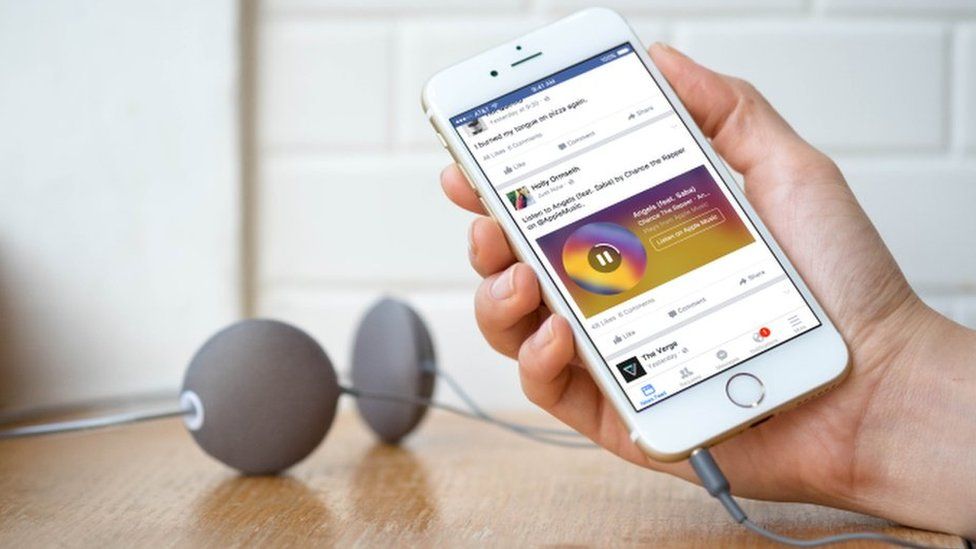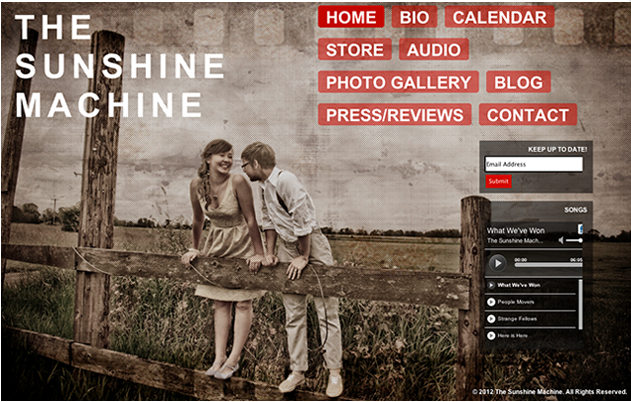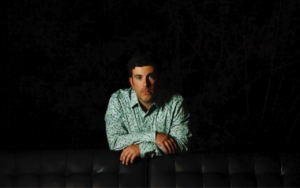


Yes, you have an “online presence” — but so does every other artist in the world.
That’s okay. Social media is integral to a musician’s success these days. But total reliance on social media is an all-too-common mistake a lot of new bands make. What these platforms do not provide you with, of course, is a website: an online headquarters for your music, a space that you control for the long haul.
Why you need to have your own band website
Earlier this year, I asked Courtney Gallagher of Club Passim whether or not bands need to have their own websites. She said:
It’s important for artists to have a website dedicated specifically to them. Personally, I promote an average of more than one show a day for our venue, so if I am sending out a newsletter to 25,000 people and I want to feature your act by including a video and you don’t have a website that makes it easy for me, I am going to have to move on to the next artist.
Without your own website, you’re not just losing out on press and promo opportunities. You might actually be losing out on gigs too. I asked Matt Smith of Club Passim if he would book a band that only had a page on Facebook, Bandcamp, or ReverbNation. He said:
Of all of those pages, I’d only be likely to give an actual booking to someone with a Facebook page. Bandcamp only has music (a great thing, but not useful for show dates, etc.), and a ReverbNation page always just feels like a refuge for bar bands. It’s more of a page to house a press kit than for fans. Artists need a centralized location for info for their fans/clubs/etc. to get the word out about shows.
Most industry experts agree, musicians need a dedicated website, and here’s why:
- Having your own site makes you look pro. It shows that you’re taking your music career seriously. That (probably) means you’re more dependable, more talented, and of more interest to whoever is visiting your site.
- People want a one-stop destination. If I’m checking out a new band, I hit their website first (assuming I can find it in the top search results on Google). It’s the easiest way to get a quick overview of what the band is all about and where else they’re active (through links to social sites). Plus, it’s the easiest way to sign up for their mailing list if I’m feeling intrigued enough.
- You are at the center of the experience. Along those same lines, a standalone website is really the only place a band or artist can effectively display their “brand.” Other sites may let you mess around with color schemes, but your own site is the only place where people can get the full experience of you and your aesthetic at work.
- Your own site gives you total control, meaning you never have to worry about whether or not people are actually seeing your updates, or if the information is getting lost in the shuffle. Anything you post will be right there until you don’t want it to be anymore. No paying to promote your messages to your followers. Your fan relationship is co-owned by you and your fans, not by some corporation in Silicon Valley.
- Social media platforms come and go. While website styles may change, having your own site isn’t going to go out of style. So many musicians invested time in MySpace only to lose that connection with fans once the platform fell out of favor. Over the past few years, a similar thing has happened with Facebook among younger music fans. Don’t be the victim of a passing social media trend. At the very least, don’t put all your eggs in the social media basket. Make your website the top priority, because it will probably outlast them all.
—-
What do you think? Do musicians need their own websites? Why, or why not? Let us know in the comments!
Make a mobile-friendly website with Bandzoogle and get 15% off your first year, PLUS 2 free CD Baby Standard submissions with any annual plan! Build your website now.
